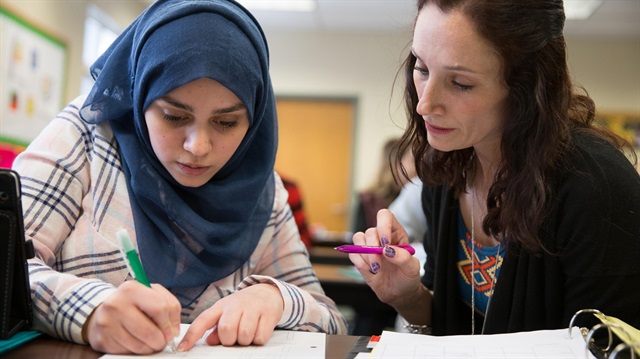
Since the outbreak of the Syrian crisis in 2011, approximately 7 million displaced Syrians have become refugees in neighboring countries such as Lebanon, Iraq, Jordan, Egypt and Turkey, as well as in Europe and elsewhere. It is obvious that this mass migration from Syria has seriously damaged the normal flow of the lives of the refugees and caused them to face many problems in the host countries. Education, particularly higher education, is one of the fields in which Syrian refugee students enormously suffer and thus definitely need support to adapt and conform themselves to the education systems of host countries.
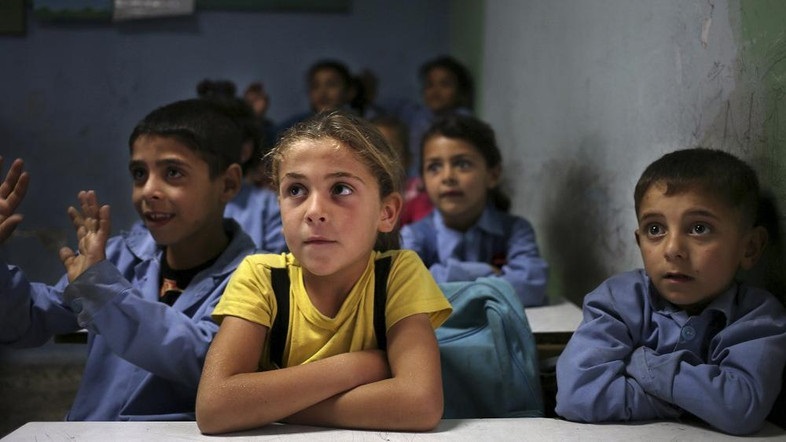
As for higher education opportunities for Syrian refugee students, recently I have attended a “Conference on Higher Education and Refugees in the Mediterranean region” held on Sept. 26-27, 2017 at the Crowne Plaza Hotel in Beirut, Lebanon. The conference was organized by the European Commission’s Directorate General for Education, Youth, Sport and Culture (DG EAC) and by the HOPES project “Higher and Further Education Opportunities and Perspectives for Syrians” funded by the European Union’s Regional Trust Fund in response to the Syrian Crisis the Madad Fund, and implemented by the German Academic Exchange Service (DAAD), the British Council, Campus France and Nuffic. More than 100 participants from different universities of the Mediterranean regions, Europe, Turkey, NGOs, the European Commission, the Turkish Higher Education Council and so forth debated “The impact of the Syrian crisis on the higher education systems of neighboring countries, while addressing various examples of higher education systems facing similar challenges in Europe and in other Southern Mediterranean countries” in detail for two days. All the parties in the conference seemed very much concerned with what is called “The Lost Generation” because each participant argued that Syrian refugee students’ access to higher education has been visibly limited and even diminishing in numbers due to some serious obstacles faced in the host countries. According to the report prepared by Keith David Watenpaugh, Adrienne L. Fricke, and James R. King, for instance, “Before the war, around 26 percent of Syrian young people were enrolled in higher education.” Additionally, the 2016 report of the “EU Regional Trust Fund in Response to the Syrian Crisis” shows that the estimated number of Syrian students in higher education aged 18-24 out of the total population was 20 percent before the war, yet the same report shows that this number decreased to less than 5 percent in 2016. These figures point to the fact that Syrian refugee students face serious difficulty in having access to higher education in the host countries that they live in. In their joint study on the higher education of Syrian refugee students, Ahmad Al-Hawamdeh and Hana A. El-Ghali argue that “The continued disruption of Syrians’ higher education poses a great threat to the financial status and quality of life of refugees. Moreover, an uneducated ‘lost generation’ will not be equipped to rebuild the economic, political, educational, and infrastructures in post-war Syria.”
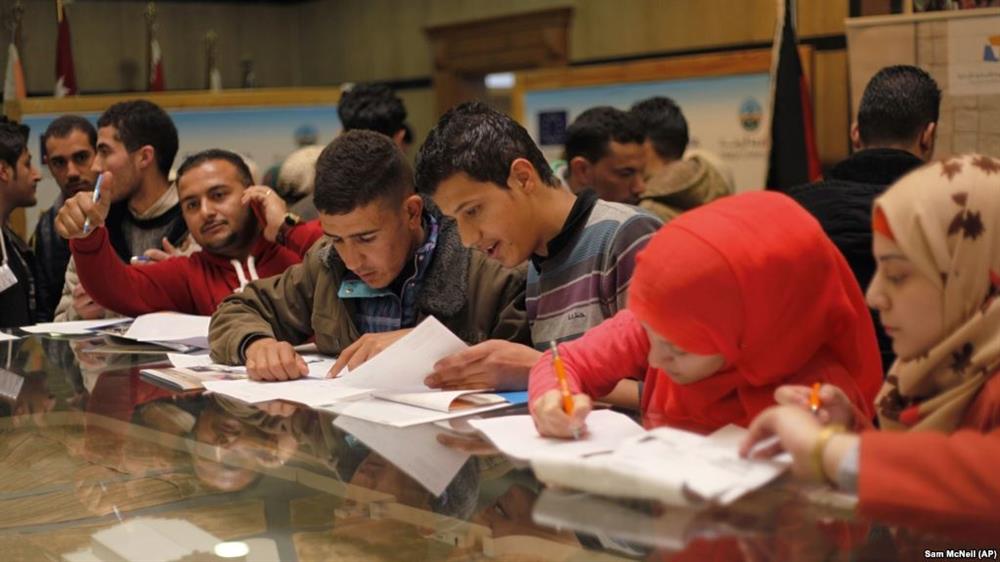
The conference I attended focused closely upon this fundamental issue of how to save the “uneducated ‘lost generation’” of Syrian refugee students and get them back to higher education. For two days, there were really important presentations and talks about the Syrian crisis and the higher education of Syrian refugee students in Lebanon, Iraq, Jordan, Egypt and Turkey, as well as in Europe and elsewhere. Participants sincerely shared their experiences with each other, talked about the problems they have faced and suggested, from their point of view, what may be done to resolve this critical situation. The main difficulty everyone agreed on is the financial problem and scholarships. They not only called for international aid agencies to further increase their donation, but they also asked private donors and NGOs to shoulder responsibility; otherwise, young people aged 18-14 will have to work overseas to support themselves and their families, which will definitely interrupt their higher education. The second severe threat to the higher education of Syrian students is the language barrier. Although host countries try to minimize its adverse effect, the language barrier is still a significant issue in education since there are not many programs which offer courses in Arabic or English in the host countries, so that learning the native language or learning English takes time and thus causes the delay. Sometimes the lack of command of Turkish or English, as in the case of Turkey, also negatively affects their studies and eventually discourages and frustrates them, so that many give up. For teaching language, researches and reports show that Turkey, in addition to its humanitarian aid, has done more than its share compared to the other host countries. For instance, each university has opened a Turkish Language Centre (TOMER), where Syrian refugee students learn Turkish and then are able to continue their higher education. Students are also able to attend School of Foreign Languages to hone their English.
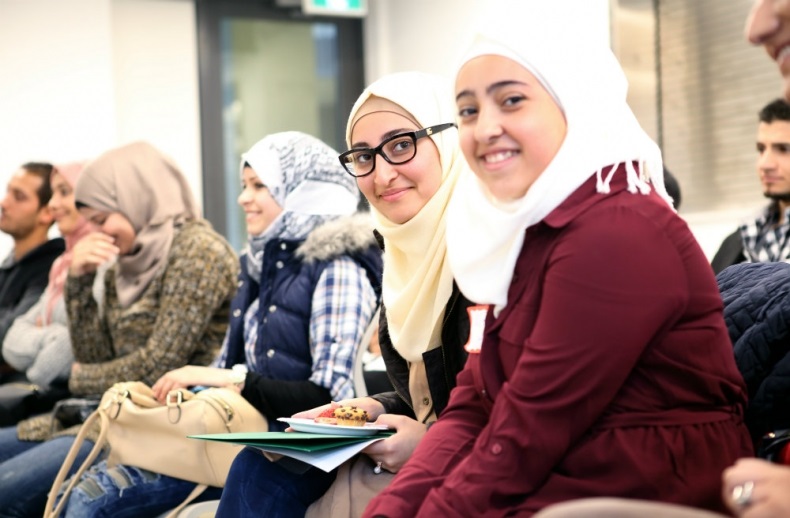
In addition, a few universities such as Gaziantep University, located in Turkey’s south eastern province Gaziantep, offer courses in Arabic. Another main problem discussed in the conference is the high number of Syrian refugees in host countries such as Turkey, Lebanon and Jordan compared to European countries and the U.S. In absence of international support and assistance, this over-crowded situation becomes even more critical, and further difficult to handle the higher education of Syrian refugee students in Turkey, Lebanon and other locations.
Of course, there are many other issues debated in the conference, yet what I would like to talk about here is something else. Conference participants seemed to truly do their best to help Syrian students, solve their education problems and make them ready to rebuild not only their own lives but also their country in the near future. But these activities are really small-scale, sometimes local and sometimes disorganized. These sincere efforts are all good and well, yet the misery and sufferıng will worsen, because it is blatant is that the Syrian crisis will not end as long as Syria continues to be the playground of new colonial superpowers.
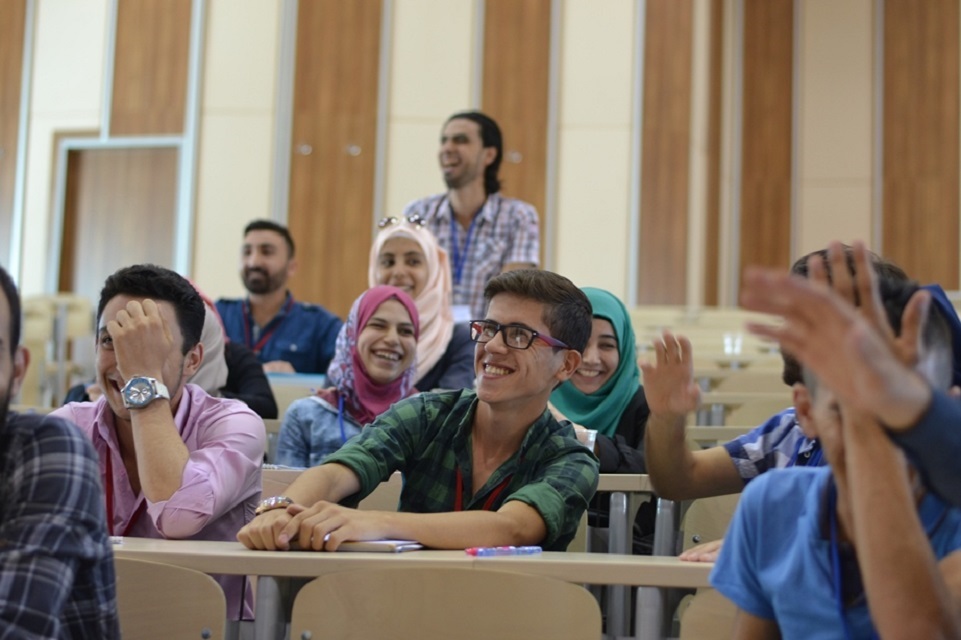
As Rula Jebreal writes in her article titled “How to Treat Refugees with Dignity: A Lesson From Turkey,” published in the New York Times, “The greatest burden of receiving Syria’s refugees has fallen not on the United States or on Europe, but on Syria’s neighbors: Turkey, Lebanon and Jordan.” The instability in Syria in particular and in the Middle East in general obviously will definitely deteriorate the crisis even further, not only leading more Syrians, Yemenis, Iraqis, and Palestinians to suffer but also leading to the emergence of new proxy terror groups in the region as in the past. What experience show us is that the instability and the clash of interest in the Middle East helps new colonialists enlarge their area of influence, which means more clashes, more deaths, more suffering and misery in the region. What is funny and crazes us is that these new colonizers delicately organize their policies in such a way that they seem to deal with the crisis; that is, they create the problem and conflict by applying their “divide and conquer” policy in a quiet manner that makes no one suspicious of the situation at first sight; then they try to convince us through the controlled media and other means of propaganda. Later on, they strive to end the conflict, as though they really want an end, for the sake of peace and humanity. As in the case of the Syrian Crisis and Daesh, for example, a lot of superficial talks, meetings, conversations and so on have constantly followed one another until now. In the end, it has amounted to nothing, yet new colonialists have managed to expand their space and influence in the region: that is, they, as usual, feed on the crisis to get the lion’s share of the cake, while the indigenous people immensely suffer. To be honest, they do not seem sincere and honest in their talks and efforts to find a solution to the conflict but give an impression that they always have a secret agenda; there is always a sense of mistrust, and thus how would you trust stakeholders and resolve the conflict in such a situation? This is apparently a new form of imperialism or colonialism to control the weak or the places which are rich in natural resources. When it comes to the United Nations, whose main purposes are to maintain international peace and security, to protect human rights, to promote sustainable development and to uphold international law, everyone knows its lamentable condition; it has obviously lost its credibility and trust. Although the UN is severely criticized by many leaders such as Turkish President Recep Tayyip Erdogan, the destiny of the whole world still lies between the two lips of the five permanent members – China, France, the Russian Federation, the United Kingdom and The United States of America – of the United Nation Security Council that have the right to veto any decision they do not like or which is against their interest, so that it will be naïve to expect a just and strong decision from the UN. Simply, the UN is not free and independent in its law, decisions and applications but a slave to the desires and interests of the five permanent members of the Security Council.
Hence whatever was debated and shared at the conference in Beirut, concerning the serious threats to the lives and barriers to the higher education of Syrian refugee students, will not go much beyond talks and discussions without the strong will, determination, honesty, and even more the trustworthiness of the United Nations, the European Union, developed countries, NGOs and volunteer groups. Otherwise, the conflicts and sufferings, as in the case of Syria, Yemen, Iraq, Palestine, and Rakhine, will never end.
By Prof. Dr. Ali Güneş, Vice Rector at Karabük University














